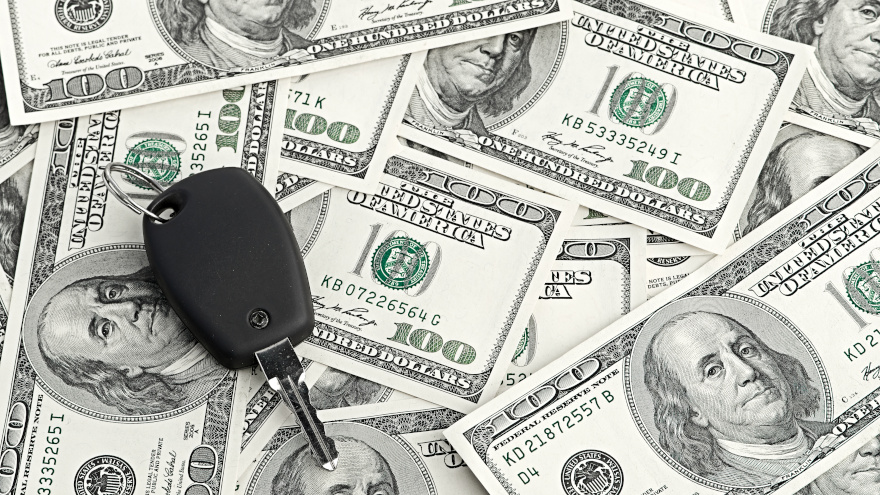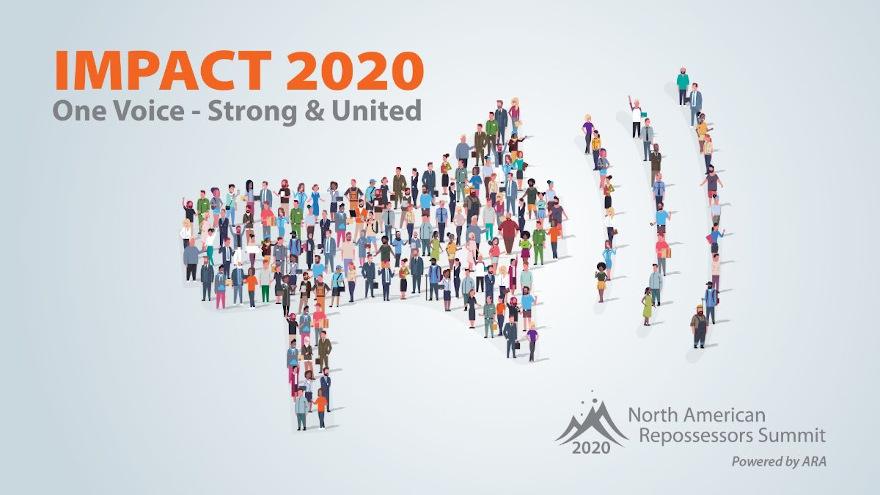Along with many finance companies offering their own programs, Experian also is accelerating and enhancing its financial education in response to the urgent and rapid changes associated with COVID-19.
With expected delays in bill payments, unprecedented layoffs, hiring freezes and related hardships, Experian said on Monday that it seeks to aid consumers in understanding how the credit reporting system and personal finance overall will move forward in this landscape. Experian is inviting everyone to join its special eight-week series of #CreditChat conversations surrounding COVID-19 on Wednesdays at 3 p.m. ET on Twitter.
The first chat will take place on Wednesday, a session that’s titled, “How to Manage our Finances & Credit During This Coronavirus Pandemic.”
Experian’s weekly #CreditChat program started in 2012 to help the community learn about credit and important personal finance topics (e.g. saving money, paying down debt, improving credit scores). The next several #CreditChats will be dedicated to discussing ways to manage finances and credit during the pandemic.
The credit bureau said topics of these #CreditChats will include methods and strategies for bill repayment, paying down debt, emergency financial assistance and preparing for retirement during COVID-19.
“As the consumer’s credit bureau, we are committed to working with consumers, lenders and the financial community during and following the impacts of COVID-19,” said Craig Boundy, chief executive officer of Experian North America.
“As part of our nation’s new reality, Experian is planning for options to help mitigate the potential impact on credit scores due to financial hardships seen nationwide,” Boundy continued in a news release. “Our upcoming #CreditChat series and supporting resources will serve as one of several informational touchpoints with consumers moving forward.”
In other efforts to help consumers and lenders during this unprecedented period, Experian has created a dedicated blog page, COVID-19 and Your Credit Report, with ongoing and updated information pertaining to how COVID-19 may impact consumers’ creditworthiness and — ultimately — what people should do to preserve it.
The blog will be updated with relevant news as Experian announces new solutions and tactics. Additionally, the Ask Experian blog invites consumers to explore immediate and evolving resources on its COVID-19 Updates page.
In addition to this guidance, and with consumer confidence in the economy expected to decline, Experian mentioned that it will be listening closely to the expert voices in its Consumer Council, a group of leaders from organizations committed to helping consumers on their financial journey. Experian established a Consumer Council in 2009 to strengthen its relationships and to initiate a dialogue among Experian and consumer advocacy groups, industry experts, academics and other key stakeholders.
“This is in addition to ongoing collaboration with our regulators,” Experian said.
Additionally, the credit bureau highlighted that Experian’s Education Ambassador program enables hundreds of employee volunteers to serve as ambassadors sharing helpful information with consumers, community groups and others. The goal is to help the communities Experian serves across North America, providing the knowledge consumers need to better manage their credit, protect themselves from fraud and identity theft and lead more successful, financially healthy lives.
“Our commitment at Experian is to inform, guide and protect our consumers and customers during uncertain times,” said Rod Griffin, director of public education and advocacy for Experian. “COVID-19 has impacted all industries and individuals from all walks of life. We want our community to know we are right there with them.”
To follow Wednesday’s #CreditChat, connect via http://www.tchat.io/rooms/creditchat. For more information on Experian’s #CreditChat, visit https://www.experian.com/blogs/news/about/creditchat/.
CallMiner is leveraging its 17 years of experience to offer a free webinar to help finance companies keep one of their most important departments functioning as the coronavirus impact intensifies — their call centers.
CallMiner’s Steve Chirokas and Brian LaRoche are set to be joined by Donna Fluss of DMG Consulting for an educational session titled, “Managing Contact Centers Through the Pandemic.” The webinar scheduled for noon ET on April 14 will focus on a quartet of topics, including:
• The actions you should take if you don’t have a business continuity plan for your contact center
• What technologies and applications are best suited to help you through these challenging times
• Best practices for managing contact center employees during this pandemic
• How to reassure customers that you are there for them
“COVID-19 has captured the attention of the world. Never before have developed countries confronted a virus that has reached such pandemic levels,” CallMiner said. “Times are tough and contact centers are taking the brunt of it. Leaders are challenged to find a balance between the needs of their employees and their customers.
“Join noted contact center expert Donna Fluss and customer experience leaders Steve Chirokas and Brian LaRoche as they discuss best practices to handle this pandemic,” the company continued.
Registration for the webinar can be completed here.
Kroll Bond Rating Agency (KBRA) noticed seasonal improvement in February as analysts released their auto loan ABS update this week.
However, much of KBRA’s latest discussion revolved around the impact COVID-19 is going to leave. But first, analysts reviewed their latest data that showed credit performance showed signs of improvement as annualized net losses and 60-day delinquency rates declined in both of its auto loan ABS indices.
Annualized net losses and 60-day delinquencies in KBRA’s Prime Auto Loan Index for February dipped 3 basis points and 1 basis point month-over-month to 0.72% and 0.48%, respectively.
Meanwhile, KBRA’s Non-Prime Auto Loan Index posted readings for annualized net losses and 60-day delinquencies of 9.37% and 5.62%, marking declines of 13 basis points and 10 basis points, respectively, versus the previous month.
Looking at the year-over-year comparisons, KBRA determined prime index losses and delinquency rates remained either flat or slightly lower versus February of last year. On the non-prime side, annualized net losses dropped 15 basis points year-over-year, but analysts mentioned contract holders 60 days or more past due rose 20 basis points compared to last February.
Also of note, KBAR reported that the percentage of prime and non-prime contract holders who went from 60-days delinquent to current in February climbed 354 basis points and 187 basis points month-over-month to 21.8% and 13.5%, respectively.
Furthermore, the percentage of prime and non-prime contract holders who rolled from delinquency to charge-offs in February came in at 14.5% and 21.9%, respectively, down 78 basis points and 105 basis points versus January.
And now, the main topic facing finance companies during these unprecedented times. KBRA offered its initial glimpse.
“Historically, auto loan delinquency and loss rates fall between February and May (corresponding to the January t0 April collection periods) as borrowers receive their tax refunds, providing an additional source of cash to catch up on late payments,” KBRA said in its latest report.
“However, we believe the seasonal improvement in auto loan credit performance may be short-lived this year, as labor market pressures precipitated by the effects of the coronavirus (COVID-19) — rising unemployment and a reduction in hours worked — could more than offset any tax refund and/or government relief related benefit, as well as any loan modifications and forbearances provided by servicers,” analysts continued.
“That said, we do not expect to see the impact of the coronavirus in our index for another two months, as next month’s index will reflect the February collection period (March reporting period) and the virus containment measures only came into force during the week of March 9,” analysts went on to say.
Ally Financial took significant action to help both consumer and dealer customers who might be experiencing significant cash-flow issues triggered by the COVID-19 health crisis.
In a news release distributed on Wednesday afternoon, Ally said existing loan customers will be allowed to defer payment for up to 120 days. The company said no late fees will be charged, but finance charges will accrue.
Furthermore, new Ally consumer customers will have the option to defer their first payment for 90 days.
In recognition that dealers are fundamental economic engines for their local economies, Ally said it is working closely with its network of approximately 18,000 dealers to navigate changing market dynamics, assess their specific needs and develop individualized solutions. This strategy includes offering consumer incentives that help dealer customers, as well as specific solutions to help dealers with their loan funding needs.
Ally also is making its dedicated credit and funding staff available to dealers as needed to provide fast and efficient funding options that help them maximize used- and new-vehicle sales.
“At Ally, we recognize there has never been a more critical time to deliver on our promise to ‘do it right’, and we are committed to supporting the people we serve safely and confidently through this crisis,” Ally chief executive officer Jeffrey Brown said in the news release. “We are taking multiple steps to support our customers, communities and all stakeholders to bolster peace of mind and help safeguard their long-term financial well-being.
“We’ll leverage our strong market position and consumer lending capabilities as we work through the crisis and continue to prioritize long-term value. When we all do our part, we help create stronger and more resilient communities that benefit us all,” Brown continued.
Along with offering similar deferments for its mortgage customers, Ally is increasing its philanthropic efforts, too.
Ally said it will direct $3 million to help those impacted by COVID-19. The funds will respond to critical needs — including food/food distribution, health care, emergency housing and childcare — identified by our partners in the communities where our employees live and work, with special focus on Ally’s hometown locations of Detroit and Charlotte, N.C.
• $1 million to support relief efforts and organizations in Detroit
• $1 million to support relief efforts and organizations in Charlotte
• $900,000 directed to other key markets in which Ally operates
• $100,000 directed to Ally’s “Moguls in the Making” partner, the Thurgood Marshall College Fund, to support students at HBCUs who have critical needs to enable the continuation of their education
For employees who wish to donate to organizations supporting relief efforts, Ally will offer a $1,000 individual match or a group match up to $10,000. The company will also identify virtual volunteer efforts (such as online tutoring for students affected by school closures) for Ally employees who are eager to respond to community needs.
Ally also shared an update involving strategy for its employees.
Ally said it moved quickly and decisively to protect the health and wellbeing of employees and contractors, restricting travel, curtailing visitors, canceling events and educating employees on CDC/WHO best practices including social distancing.
The company indicated the majority of Ally’s employees are currently working from home, and the company is making significant progress toward its goal of enabling its entire workforce to do so within the next week. In the limited cases where that is not yet possible, Ally is:
• Further reducing density by moving to a rotational schedule
• Increasing facility cleaning services
• Providing extra supplies such as hand sanitizer, disinfecting wipes and pre-packaged snacks and water
• Emphasizing CDC/WHO recommended personal safety protocols
• Requiring a daily attestation of wellness
Other programs to support employees include:
• Immediate paid medical leave for any employee diagnosed with COVID-19
• Access to free mental health professionals, via phone or text, through its Employee Assistance Program
• Free financial planning support, including access to certified planners and credit monitoring
• Virtual doctor visits and online health care services
• Supplemental childcare benefits
• Paid caregiver leave for employees caring for an ill family member
• Well-being modules and challenges geared to staying physically and mentally healthy at home
Similar to the latest reading on defaults, Experian’s Q4 2019 State of the Automotive Finance Market Report showed 60-day delinquencies finished the year in a stable place as the industry braces for potential jumps in these metrics stemming from the COVID-19 pandemic.
Experian pegged the overall 60-day delinquency rate at 0.79% as of the fourth quarter, just 1 basis point higher than a year earlier. What Experian classifies as finance companies — providers that typically don’t hold deposits and often book the most subprime paper — experienced a rise of 9 basis points year-over-year to close 2019 at 1.74%
The other classifications of auto-finance providers watched their 60-day delinquency readings dip slightly year-over-year during the fourth quarter, according to Experian. Here is the rundown:
— Banks: 0.72%, down 3 basis points
— Captives: 0.62%, down 2 basis points
— Credit Unions: 0.32%, down 1 basis point
Looking at the data by state, Experian determined the top 10 readings for 60-day delinquency represented the areas familiar to repossession and recovery professionals. The latest top listing had four states with the same reading and included:
1. Mississippi: 1.54%
2. Maryland: 1.45%
3. Louisiana: 1.26%
4. Georgia: 1.14%
5. South Carolina: 1.05%
6. Alabama: 1.01%
T7. Arkansas: 0.88%
T7. New Mexico: 0.88%
T7. North Carolina: 0.88%
T7. Texas: 0.88%
Here’s some encouraging news amid all of the economic turmoil caused by COVID-19. The auto segment of the S&P/Experian Consumer Credit Default Indices showed a significant decline in February.
On Tuesday, Dow Jones Indices and Experian released their data through February and reported that auto defaults dropped 10 basis points on a sequential basis to land at 0.89%. That’s the lowest reading since last July when it also stood at 0.89% after two straight months when analysts pegged the metric at 0.87%.
And for some perspective in light of the coronavirus impact, data from Dow Jones Indices and Experian indicated the reading in January 2010 was 2.57% as the industry still was recovering from the Great Recession.
Turning back to the February data, Dow Jones Indices and Experian indicate the composite rate — a comprehensive measure of changes in consumer credit defaults — remained unchanged at 1.02%.
Analysts also found the first mortgage default rate stayed unchanged in February, too, holding at 0.84%. Going counter to the auto sector, Dow Jones Indices and Experian noticed the bank card default rate increased 13 basis points to 3.41%.
Among the five major metropolitan areas analysts track for the monthly update, analysts pointed out four cities posted lower default rates in February compared to the previous month.
Miami generated the largest decrease, dropping 11 basis points to 1.66%. New York fell 7 basis points to 1.00%, while Los Angeles dropped 6 basis points to 0.80%. Dallas dipped 5 basis points to settle at 1.02%.
Chicago was the only major metropolitan area that increased in February, rising 4 basis points to 1.21%.
Jointly developed by S&P Indices and Experian, analysts noted the S&P/Experian Consumer Credit Default Indices are published monthly with the intent to accurately track the default experience of consumer balances in four key loan categories: auto, bankcard, first mortgage lien and second mortgage lien.
The indices are calculated based on data extracted from Experian’s consumer credit database. This database is populated with individual consumer loan and payment data submitted by lenders to Experian every month.
Experian’s base of data contributors includes leading banks and mortgage companies and covers approximately $11 trillion in outstanding loans sourced from 11,500 lenders.
With circumstances changing so quickly, the Federal Reserve on Sunday afternoon cut interest rates to zero percent and announced it would purchase $700 billion in bonds and securities to help stabilize the financial system in light of COVID-19.
Policymakers were on tap to meet later this week for its regularly scheduled gathering but chose to take action earlier.
“Overall economic activity has been expanding at a moderate rate, even though weak growth abroad and trade developments have been weighing on some sectors. U.S. banks are strong, have high levels of capital and liquidity, and are well positioned to provide credit to households and businesses,” Federal Reserve chair Jerome Powell said in a statement following Sunday’s actions.
“Against this favorable backdrop, the virus presents significant economic challenges. Like others, we expect that the illness and the measures now being put in place to stem its spread will have a significant effect on economic activity in the near term,” Powell continued.
“Financial conditions have also tightened markedly. The cost of credit has risen for all but the strongest borrowers, and stock markets around the world are down sharply,” he added.
“The actions we have announced today will help American families and businesses, and indeed, our entire economy weather this difficult period and will foster a more vigorous return to normal once the disruptions from the coronavirus abate,” Powell went on to say. “We will continue to closely monitor economic and financial developments and their implications for the economic outlook. We are prepared to use our full range of tools to support the flow of credit to households and business, to help keep the economy strong, and to promote our maximum employment and price stability goals.
After the Fed made its move, National Association of Federally-Insured Credit Unions (NAFCU) chief economist and vice president of research Curt Long offered this reaction, including a situation likely on the minds of dealerships and finance companies.
“The actions from the Fed ahead of its scheduled meeting on Wednesday reflect the view that a recession is a virtual inevitability,” Long said. “As the Fed has stated previously, it believes it is better to meet such a scenario early and with force, rather than by gradually opening the faucets.
“With such a comprehensive stimulus package, all eyes now turn to Congress for the fiscal response. Much depends on how the health situation evolves, but credit unions should plan for rates to be stuck at zero for most of this year,” Long added.
The Fed’s actions arrived after leading financial executives and bank leaders attended a White House meeting last week to discuss possible fallout from the coronavirus.
“Banks have implemented emergency measures to assist impacted customers and small businesses and appreciate statements from regulators allowing for increased flexibility to do so,” Consumer Bankers Association president and chief executive officer Richard Hunt said in a statement.
“Over the last decade, banks have built strong foundations, including the doubling of capital reserves, passing increasingly strong stress tests and a continued decline in problem institutions,” Hunt added.
Add the North American Repossessors Summit (NARS) to this list of industry events being forced to modify its schedule due to the increased risk associated with COVID-19.
The American Recovery Association sent a message late on Thursday, saying the organization will be postponing the ARA annual convention and NARS 2020. The 56th annual convention now will be held on Sept. 30, followed by NARS 2020 on Oct. 1-2.
NARS 2020 originally was scheduled for May 7-8 in Irving, Texas.
“We understand the unique obstacles business owners in our industry are currently facing during this time of change and consolidation,” ARA president Dave Kennedy said in the message. “Now more than ever, we know it’s important for the industry to unify forces, establish industry standards and address concerns.
“However, as the committee continued to monitor the COVID-19 outbreak over the past week, it became clear that we must take immediate action to protect the health and safety of our attendees,” Kennedy continued.
Earlier on Thursday, organizers of the Conference of Automotive Remarketing have postponed the 2020 CAR Conference, originally scheduled for later this month in Las Vegas.
For individuals who have registered as an attendee, as well as sponsors and exhibitors, ARA said registrations will automatically transfer to the new fall dates, eliminating the need to re-register.
If potential attendees have not yet registered at all, ARA said regular registration prices will be extended until Aug. 7.
If you have specific questions about the 2020 ARA Convention or NARS, the association said to send messages to [email protected].
ARA added that it will continue to provide more details about its events in the coming weeks.
With unity at the forefront of our mission, we look forward to providing you with incredible events this fall that safely bring together recovery professionals from all over the country,” Kennedy said.
“Please continue to uphold the latest safety guidelines and precautions during this time, and we promise to do the same,” he went on to say.










